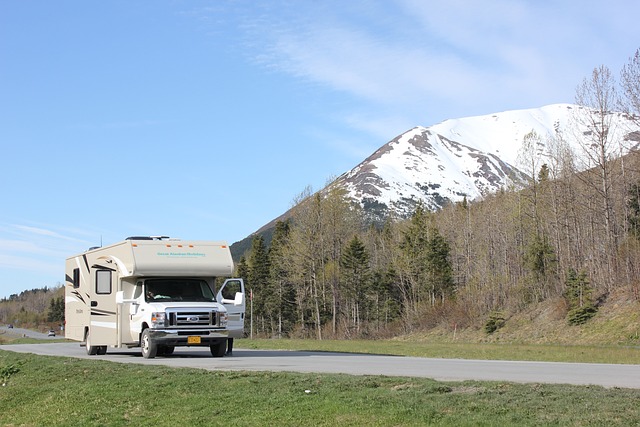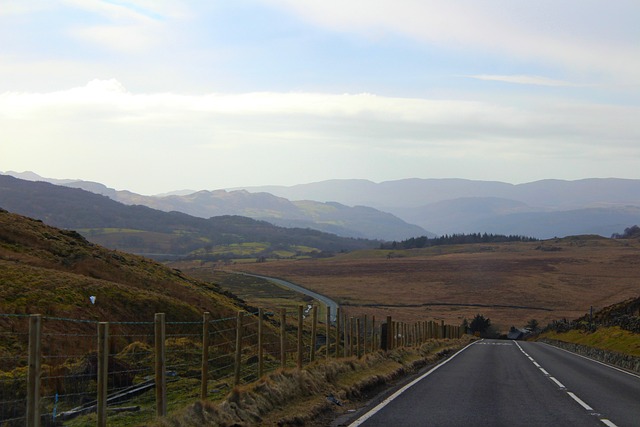Embarking on an RV journey is a novel adventure, especially for beginners. To ensure a smooth and secure RVing experience, it's crucial to meticulously prepare. This includes understanding your RV's systems such as water, electric, propane, and sanitation, and practicing setup and takedown routines to become proficient. Safety is paramount, requiring regular checks of all equipment, including fire extinguishers, smoke alarms, tires, brakes, and lights. Ensuring active and comprehensive insurance and roadside assistance coverage is also essential. Route planning tailored for RV travel will help avoid issues on the road. Being prepared means having a well-stocked first-aid kit and knowing where nearby medical facilities are. By following this guide, RVing for Beginners can be approached with confidence, equipped to handle the unique challenges that come with living and traveling in an RV. With the right preparation and understanding of your vehicle's systems, RVing for Beginners becomes a fulfilling and enriching experience.
Embarking on an RV adventure can be a fulfilling and exhilarating experience, offering the freedom to explore the vast landscapes of North America. However, with this newfound wanderlust comes the responsibility to ensure that your journey is not only exciting but also safe. This article serves as a comprehensive guide for those RVing for beginners, providing essential safety tips and strategies to secure your travels from the moment you hit the road until you reach your final destination. We’ll cover everything from understanding your RV’s systems and features to navigating with reliable GPS, all while emphasizing the importance of maintenance, emergency planning, and community support. With these preparations and practices in place, your RV odyssey can be a memorable one, filled with discovery and adventure, without compromising on safety.
- Essential Preparations Before Hitting the Road: A Guide for RVing for Beginners
- – Understanding Your RV's Systems and Features
Essential Preparations Before Hitting the Road: A Guide for RVing for Beginners

Embarking on an RV journey for the first time can be both exhilarating and daunting. To navigate the open road with confidence, beginner RVers must prepare thoroughly. This guide will outline the essential preparations to ensure a secure and enjoyable trip. Firstly, it’s crucial to familiarize yourself with your RV’s systems and features. Take time to understand how the water, electric, propane, and sanitation systems function. Practice setting up and breaking down your RV to optimize efficiency and safety. Check all safety equipment, including fire extinguishers, carbon monoxide detectors, and smoke alarms, ensuring they are in good working order. Additionally, inspect the condition of your tires, brakes, and lights, and ensure your insurance and roadside assistance coverage are up to date. Planning your route with RV-friendly destinations and campgrounds will help you avoid frustrating detours or unsuitable sites. By meticulously preparing before hitting the road, you’ll be better equipped to handle the unique challenges of RVing for Beginners, making your travel experience as smooth as possible. Remember to also pack a comprehensive first-aid kit and familiarize yourself with nearby hospitals or clinics along your route. With these preparations, you’ll set out on your RV adventure with peace of mind, ready to embrace the adventures that await.
– Understanding Your RV's Systems and Features

For RVing beginners, familiarizing oneself with the intricacies of an RV’s systems and features is paramount for a safe and enjoyable journey. Your RV is equipped with a variety of complex systems that manage everything from water and electricity to gas and sanitation. Taking the time to understand how these systems operate will not only enhance your travel experience but also prevent potential hazards. It’s advisable to read the owner’s manual thoroughly or attend an RV training course where you can learn about the specific make and model of your RV. This knowledge includes understanding the propane system, knowing how to safely connect and disconnect utilities, and recognizing signs of gas leaks or electrical issues. Additionally, learning about your RV’s navigation and safety features, such as backup cameras and fire extinguishers, will empower you to handle unexpected situations with confidence. Regular maintenance checks are also crucial; they help ensure that all systems function optimally throughout your trip. By investing time in understanding the workings of your RV, you set a foundation for a secure and fulfilling RVing adventure.
RVing for beginners embarks on a journey that requires careful planning and safety measures. This article has outlined pivotal preparations to ensure a secure travel experience. By familiarizing yourself with your RV’s systems and features, you can navigate with confidence, anticipate potential issues, and respond effectively to any challenges encountered along the way. Adhering to these safety tips is key to enhancing the enjoyment of your RV adventure and ensuring a smooth journey. Remember to regularly maintain your vehicle, plan your route in advance, and be mindful of local regulations and weather conditions. With the right preparation and knowledge, RVing for beginners can embark on a safe and memorable travel experience.
